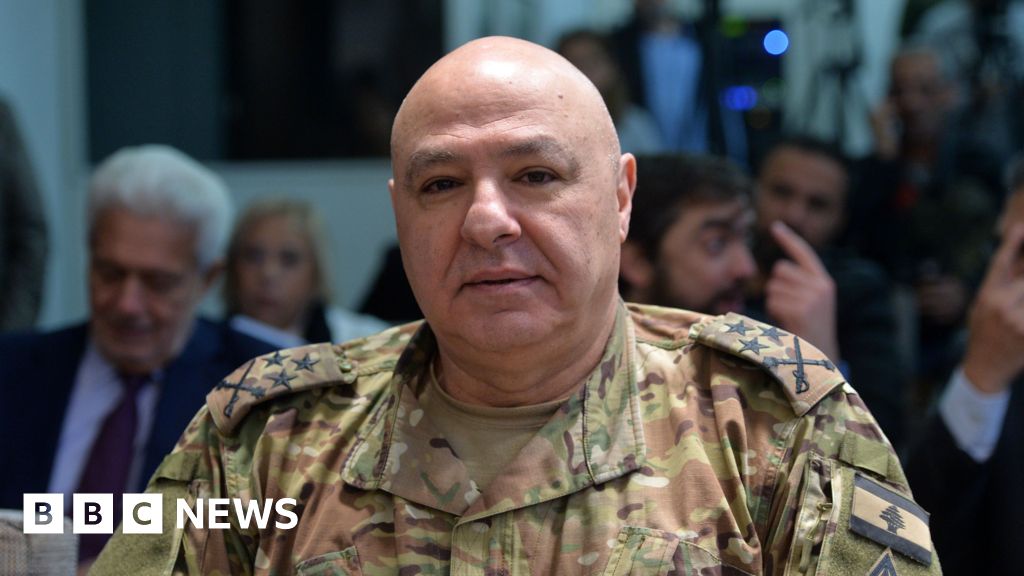Physical Address
304 North Cardinal St.
Dorchester Center, MA 02124
Physical Address
304 North Cardinal St.
Dorchester Center, MA 02124

Lebanon’s parliament has elected the country’s army chief as president, ending a power vacuum that has lasted more than two years.
Joseph Aoun’s candidacy was supported by several political parties, as well as the United States, France and Saudi Arabia.
A rival backed by the Hezbollah militia withdrew on Wednesday and backed the commander.
The presidency is a largely ceremonial role reserved for Christians in the denominational system of distribution of power.
The election comes six weeks after Lebanon’s government agreed to a ceasefire to end a devastating war between Israel and Hezbollah that has greatly weakened the Iran-backed Shiite Muslim group.
The Lebanese army has not been involved in the conflict and plays a key role under the ceasefire agreement, which requires it to deploy soldiers in southern Lebanon as Israeli troops withdraw and ensure Hezbollah ends its armed presence there by January 26.
Aoun, 60, is a career soldier who has commanded the army since 2017.
During this time, he guided the institution through the deep crises that affected Lebanon.
These include the 13-month conflict between Hezbollah and Israel, a six-year economic depression that is one of the worst on record in modern times, and the 2020 Beirut port bombing that killed more than 200 people.
Since the last parliamentary elections in May 2022, Lebanon has not had a properly functioning government.
Interim Prime Minister Najib Mikati failed to secure support for a new cabinet before the end of then-President Michel Aoun’s term in October of that year, leaving his administration with limited powers.
Lawmakers then failed to elect a new president 12 times. The last time it happened was in June 2023, when neither candidate won enough votes to win the first round, before Hezbollah and its ally Amal prevented a second round by dropping out.
A presidential candidate in Lebanon can usually be elected in the first round if he wins a two-thirds majority – or 86 votes – in the 128-seat parliament, or a simple majority in the second round. However, Speaker Nabi Berri said Aoun needed a two-thirds majority in any round because he is the army commander.
In the first round on Thursday morning, 71 lawmakers voted for Aoun, 15 fewer than he required. Another 37 lawmakers – many of them reportedly from Hezbollah and Amal – cast blank ballots and 20 ballots were declared invalid.
Berry, who is Amal’s leader, then adjourned the session until the afternoon, sparking anger among lawmakers who wanted an immediate run-off.
Aoun was eventually elected president after receiving 99 votes in the second round, easily securing the required two-thirds of the vote. Nine MPs voted blank, in addition to 18 invalid ballots.
As soon as the speaker announced the result, television channels showed scenes of celebration across the country.
Aoun was later shown arriving at the parliament building in a suit, then inspecting guards before entering the swearing-in hall.